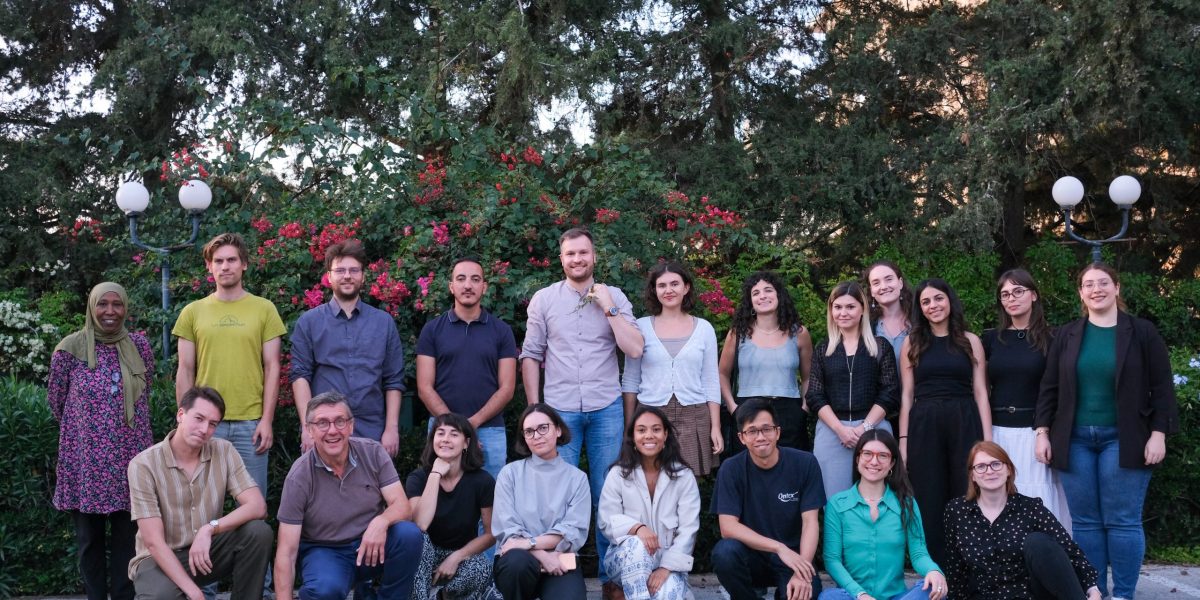An Overview of Our Advocacy Work
08 February 2026

In 2024, two events were determining for JRS Europe’s advocacy work: the adoption of the EU Asylum and Migration Pact and the European elections. In the previous years we had tried to influence the institutional negotiations around the Pact, in order to remove proposals that would put asylum seekers’ and refugee rights in danger. Despite our continuous opposition (see April 9, JRS joint statement: EU Migration Pact: Last call to stop erosion of Refugee Rights) the Pact was finally adopted in May. At this point, we shifted our focus on the Pact implementation, urging European Commission and Member States to consult with the civil society in the process and to implement the Pact in full compliance with fundamental rights. To this end, JRS Europe’s Policy and Advocacy Coordinator took in several high level and expert events and meetings organised either by the European Commission or by the Presidency of the Council of the EU. In such occasions, JRS Europe always raised issues such as the importance of avoiding arbitrary and automatic detention, the need to guarantee legal assistance to asylum seekers, especially in detention places, and the need to rethink reception models throughout Europe. Also within NGOs networks we have been active promoting discussions on how to avoid automatic detention in the context of the Pact implementation. An example is the workshop “(De facto) detention in the Common European Asylum System: assessing and preparing for the impact of the EU Pact” that we organised in the context of the ECRE Annual General Conference. Also, JRS Europe Policy and Advocacy Coordinator was invited to organise a workshop on detention and the EU Pact in the context of a Conference on Pact Implementation organised by the Dutch Council for Refugees with a large number of institutional and civil society stakeholders to influence the national implementation plan. Finally, as the Pact implementation will happen at national level, JRS Europe encouraged and supported national advocacy by JRS country offices through the JRS Advocacy Taskforce.
Advocacy work towards the European Parliament and, partially, the European Commission slowed down in the second part of the year, due to the transitional period caused by the EU Parliament elections and the consequent formation of the new European Commission. The election results unfortunately confirmed the European trend of rising anti-migration forces. This was also confirmed, in summer and fall, by Member States announcing changes to national legislation and policies that depart from EU common legislation. Also European Commission’s president, Ursula Von der Leyen, ahead of the October European Council, focused strongly in her communication on the need to intensify returns and focus on cooperation with third countries. In this climate, we kept calling for humanity (see Ahead of the European Council, JRS calls to Make Europe Humane Againhttps://jrseurope.org/en/news/ahead-of-the-european-council-jrs-calls-to-make-europe-humane-again/) and we felt more than ever the need to advocate for systems based on hospitality and inclusion. Along these lines, we published our principles for a ‘Hospitality-driven reception’ of asylum seekers in Europe, a document that will reinforce our advocacy for the years to come.
JRS Europe also continued with its engagement withing the Frontex Consultative Forum on Fundamental Rights. We participated in at least 10 meetings, both in preparation and in direct interaction with the management of the Agency. Moreover, our colleagues from JRS Serbia and JRS North-Macedonia also participated in two of the CF on-the-spot missions to their respective countries.
We also continued our engagement with the Consultative Forum on Fundamental Rights of the EU Asylum Agency (EUAA), in particular, meeting with the EUAA Fundamental Rights Officer and participating in several consultation moments, such as on the EUAA annual asylum report and on the issue of alternative to detention in border procedures.
Finally, JRS Europe’s Policy and Advocacy Coordinator actively participated in the work of JRS Global Advocacy, specifically within the working group on Access to the Territory and Legal Status. Next to monthly online meetings throughout the year, the working group also met for a four days in person workshop in Malta, where the common advocacy strategy was further defined. JRS Europe also facilitated the contacts between the JRS International Head of Global Advocacy and Geneva representative with the national advocacy officers through the European Advocacy taskforce.
